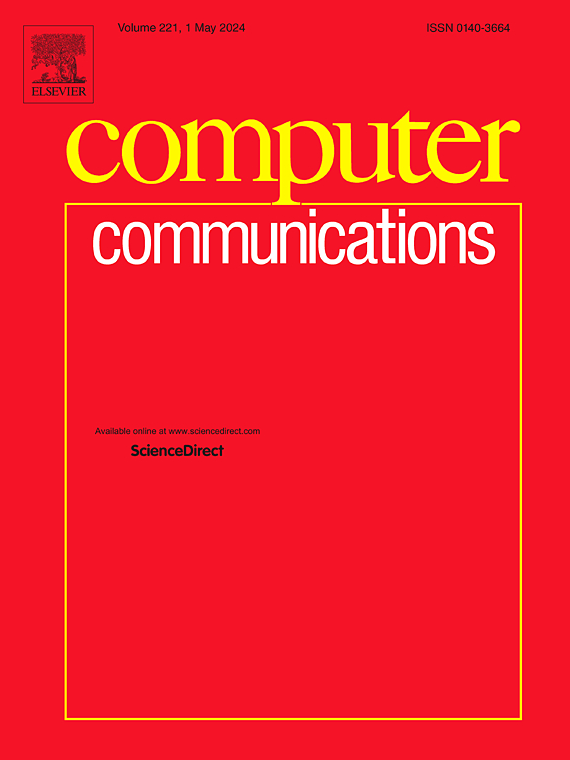移动群体感知中具有隐私保护和区域热的多目标任务分配方案
IF 4.5
3区 计算机科学
Q1 COMPUTER SCIENCE, INFORMATION SYSTEMS
引用次数: 0
摘要
在移动众测中,平台通常要求所有用户在用户招募阶段上传他们的位置信息,然后根据位置和声誉选择一部分用户执行任务。然而,这种方法会导致用户上传他们的位置信息,但不参与任务,本质上是无偿提供他们的位置数据,从而带来位置数据泄露的风险。如果用户反复上传位置信息而没有收到任务补偿,用户可能会对平台失去信心,从而离开平台。为此,本文提出了一种基于差分隐私和区域热度的多目标任务分配方案MTADPRH。在用户招募阶段,MTADPRH方案使用优化一元编码(Optimized Unary Encoding, OUE)机制对所有用户的分布进行统计分析,提供满足局部差分隐私的隐私保护。在位置上传阶段,该方案在参与用户的位置坐标中加入平面拉普拉斯噪声,实现地理不可分辨。在任务分配阶段,MTADPRH采用多目标进化算法C3M寻找Pareto最优解,以最大化用户单位距离奖励和平台收益为目标。实验结果表明,在保护隐私的情况下,MTADPRH方案在平台收益、任务完成率和用户单位距离补偿方面均取得了最佳效果,提供了优越的Pareto解。本文章由计算机程序翻译,如有差异,请以英文原文为准。
A multi-objective task allocation scheme with privacy-preserving and regional heat in mobile crowdsensing
In Mobile Crowdsensing, platforms typically require all users to upload their location information during the user recruitment phase, then select a subset of users to perform tasks based on location and reputation. However, this approach results in users who upload their location information but do not participate in tasks essentially providing their location data without compensation, posing a risk of location data leakage. If users repeatedly upload location information without receiving compensation for tasks, they may lose confidence in the platform and consequently leave it. Therefore, this paper proposes a multi-objective task allocation scheme based on differential privacy and regional heat, named MTADPRH. During the user recruitment phase, the MTADPRH scheme uses the Optimized Unary Encoding (OUE) mechanism to statistically analyze the distribution of all users, providing privacy protection that meets local differential privacy. In the location upload phase, the scheme adds planar Laplace noise to the location coordinates of participating users to achieve geo-indistinguishability. During the task allocation phase, MTADPRH employs the multi-objective evolutionary algorithm C3M to find Pareto optimal solutions, aiming to maximize the reward per unit distance for users and the revenue for the platform. The experimental results show that, with privacy protect, the MTADPRH scheme achieves the best results in terms of platform revenue, task completion rate, and per-unit distance compensation for users, and it provides a superior Pareto solution.
求助全文
通过发布文献求助,成功后即可免费获取论文全文。
去求助
来源期刊

Computer Communications
工程技术-电信学
CiteScore
14.10
自引率
5.00%
发文量
397
审稿时长
66 days
期刊介绍:
Computer and Communications networks are key infrastructures of the information society with high socio-economic value as they contribute to the correct operations of many critical services (from healthcare to finance and transportation). Internet is the core of today''s computer-communication infrastructures. This has transformed the Internet, from a robust network for data transfer between computers, to a global, content-rich, communication and information system where contents are increasingly generated by the users, and distributed according to human social relations. Next-generation network technologies, architectures and protocols are therefore required to overcome the limitations of the legacy Internet and add new capabilities and services. The future Internet should be ubiquitous, secure, resilient, and closer to human communication paradigms.
Computer Communications is a peer-reviewed international journal that publishes high-quality scientific articles (both theory and practice) and survey papers covering all aspects of future computer communication networks (on all layers, except the physical layer), with a special attention to the evolution of the Internet architecture, protocols, services, and applications.
 求助内容:
求助内容: 应助结果提醒方式:
应助结果提醒方式:


